5 things to do if your luggage is damaged by a US airline
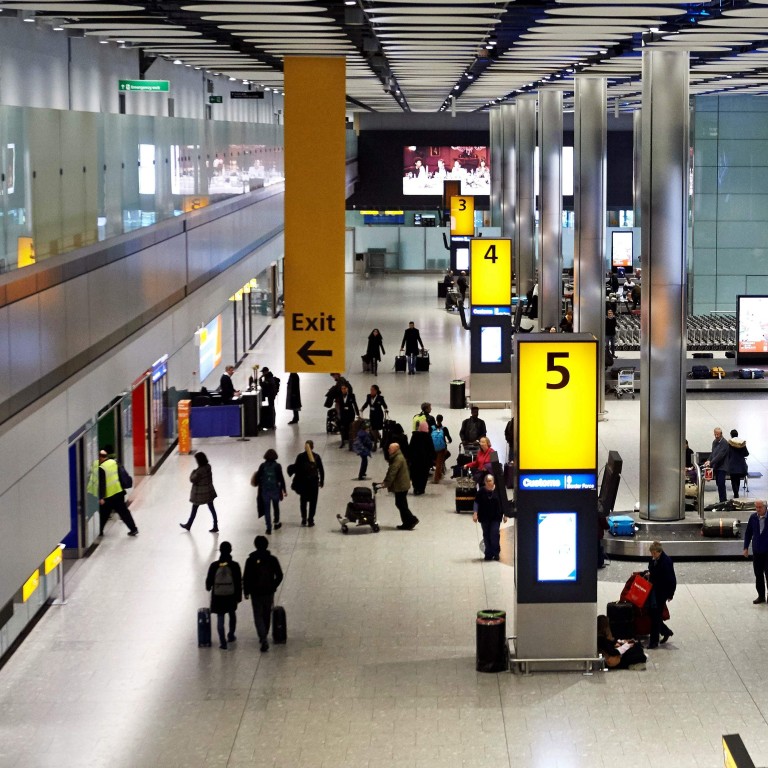
The bright-orange Kenneth Cole suitcase circled the baggage claim carousel at Dallas Love Field Airport with what looked like an antenna.
A piece of wire was all that remained of the retractable handle on the hardside bag.
I pushed it into the Southwest Airlines baggage claim office to file a claim, short on time and unsure of what came next. It was the first time an airline had damaged my bag. Delayed bags, I knew the drill. Lost bags, too, as an airline permanently lost a bag of mine several years ago.
Here’s what I learned: Travellers have options when it comes to damaged bags, and knowing your rights will put you in a better position to resolve the claim.
If you have a claim, that is. An airline’s definition of damage, backed by the US Department of transport, may differ significantly from a passenger’s definition. Normal wear and tear, including scratches, scuff marks, stains, dents and dirt, are not covered.
Every airline’s damaged bag policy has a disclaimer about normal wear and tear. And it applies even if you bought the suitcase the night before your flight or are checking in a designer bag.
“If you have a Louis Vuitton [bag] and it goes through the [conveyor] belt system, it is not white glove service,’’ said Lisa Ouimette, an analyst in American Airlines’ central baggage services office. “These are belt loaders. If you have a brand new bag, expect it to have normal wear and tear.’”
Airlines also reserve the right to deny claims to passengers with damage caused by overstuffed bags, such as broken zips, as well as poor-quality bags, and bags that were already damaged when checked in.
So what is covered?
Damage to luggage components including wheels, handles, straps and other glaring problems, such as holes or a cracked hardside bag, are covered. The latter is a big problem in cold weather, Ouimette said. (So are removable straps, which regularly get stuck in the bag loading systems, so take them off, she said.)
“We anticipate damage and when it does happen, we have a plan in place to take care of our customers,’’ she said.
Passenger rights if an airline damages your bag
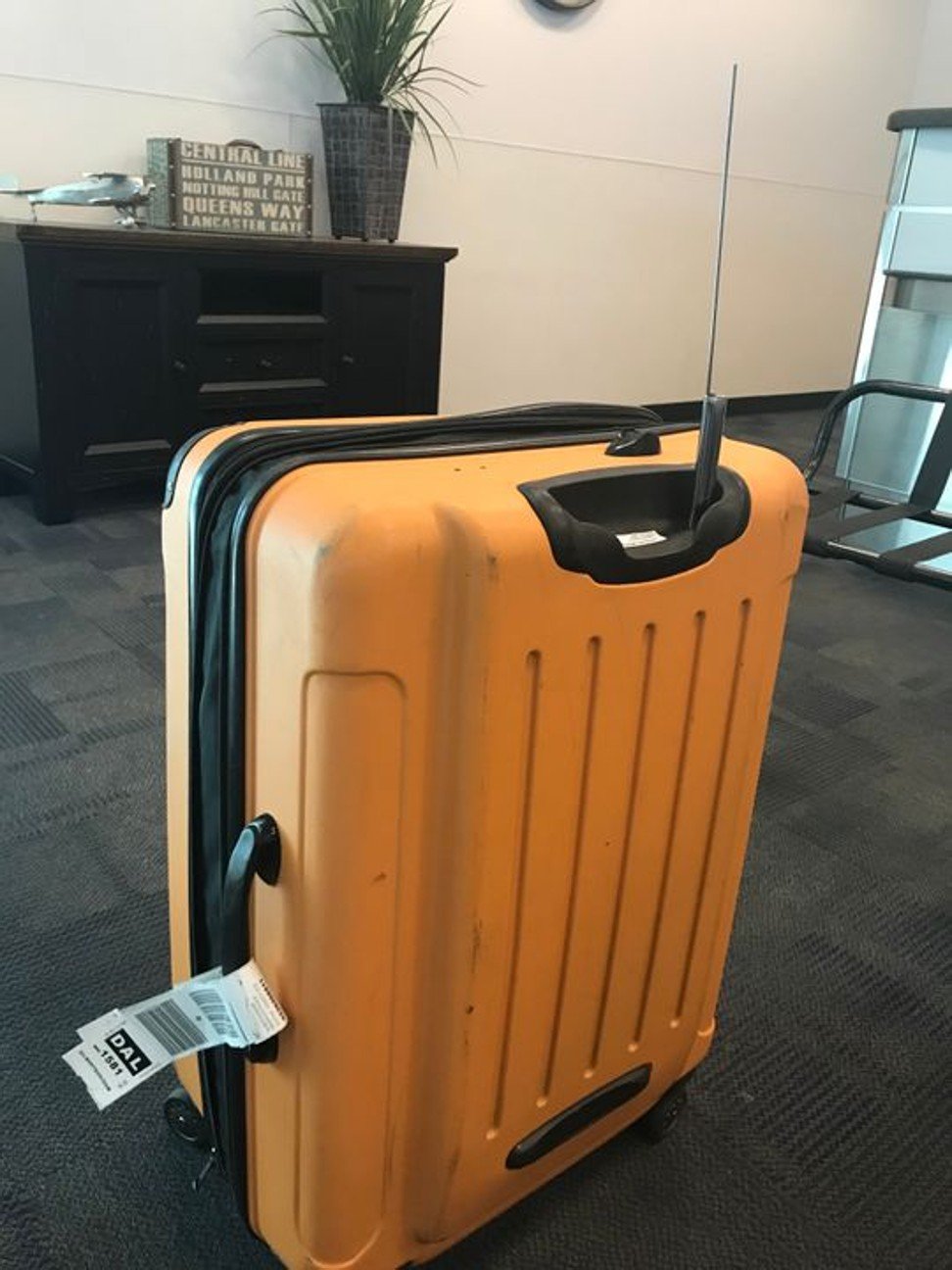
More than 87 per cent of US travellers don’t file claims against airlines following an issue with lost, damaged or delayed luggage, according to a survey earlier this year by AirHelp, a service that helps passengers get compensation for claims against airlines. The three main reasons: They didn’t think they would be entitled to compensation, they were not aware of their rights, and they did not know how to file a claim.
Airlines are responsible for repairing or reimbursing a passenger for damaged baggage and/or its contents when the damage occurs while the bag is under the airline’s control, according to the US Department of Transportation’s (DOT) Aviation Consumer Protection division.
The cheapest option for airlines is a bag repair. Many use Dallas-based Rynn’s Luggage, which bills itself as the largest airline luggage repair and replacement service in the country.
If a bag cannot be repaired, it will be replaced with a similar bag or passengers will be reimbursed. The reimbursement is based on the value of the bag and its depreciation, the DOT says, subject to liability limits.
For flights within the United States, the maximum liability for a lost, delayed or damaged bag is US$3,500. The limit on international flights, per the Montreal Convention, is about US$1,600, the agency says.
Airlines are free to pay more but there is no requirement to do so, according to the DOT.
That doesn’t mean you’re going to get US$3,500 or anything close to it if a wheel fell off your bag or your handle was destroyed. (The higher limits generally apply to a lost suitcase full of pricey personal belongings.)
My suitcase wasn’t new and had plenty of scuffs, but the broken retractable handle was clearly a big problem. I worried that Delta Air Lines, which I was flying the next day out of Dallas, wouldn’t accept it, or would have me sign a waiver absolving them of any liability should it get further damaged.
Southwest baggage representatives in Dallas were friendly and apologetic and didn’t doubt I needed a new bag. But they were clearly trying to limit their liability. (I never identify myself as a travel reporter for fear of getting special treatment, a violation of our ethics policy.)
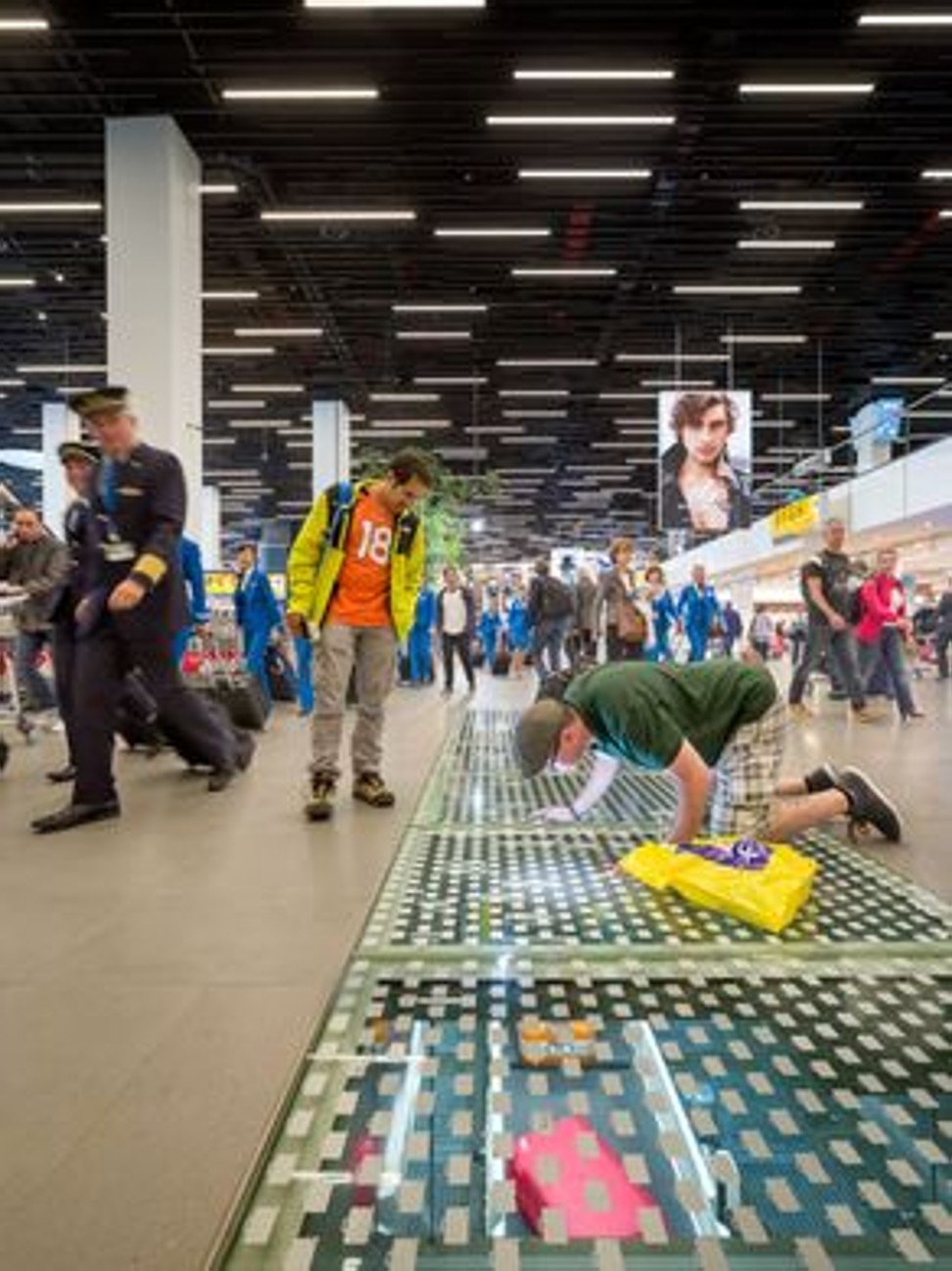
They asked how old my bag was, where I bought it, and how much I paid for it. They took photos and went to a back room computer to search for a similar bag online. They couldn’t find one, or only found heavily discounted bags. I didn’t recall how much my bag was or where I bought it but estimated it at between US$150 and US$200. A repair never came up.
Then, in a move that surprised me, they wheeled out a couple new bags about the same size as my bag. One was a hardside bag, the other a traditional suitcase, and both had spinner wheels and a retractable handle, like mine. The hardside bag wouldn’t fit all of my stuff and both bags looked relatively cheap, so I initially passed.
American’s Ouimette said airlines keep so-called stock bags on hand for cases where passengers immediately need a new bag. She ordered a bunch for American for the busy holiday season. Many passengers love them because their damaged bag is older and they are thrilled to get a new one.
I was pickier and wanted something decent for the hassle.
Southwest said they would reimburse me if I bought a new bag and brought a receipt for a similar bag on my way out of Dallas the next morning. I didn’t have time to shop during my 24-hour visit and needed a suitcase, so eventually decided to take them up on the stock bag.
In the middle of the baggage claim office, I unpacked my broken bag and transferred everything to the new softside bag.
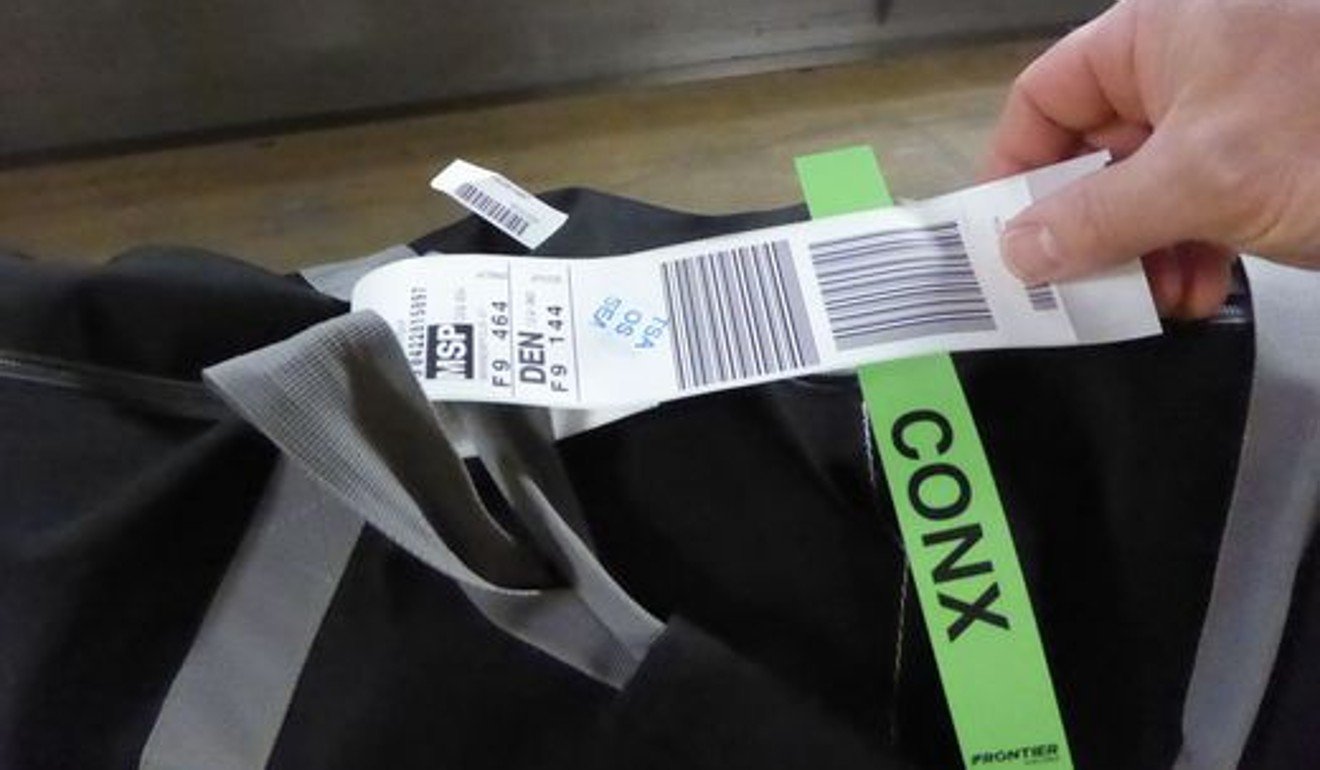
I wheeled it out of the office and into the corridor heading to the airport’s Uber pick-up area. I didn’t make it. The wheels kept circling, sending me a couple steps back for every step forward.
I fumbled my way back to the baggage claim office and told them the bag didn’t work. They were apologetic, again. I repacked everything into the broken bag and pushed it through the corridor and headed out.
Southwest said they would reimburse me for whatever bag I bought, never setting a price limit. I didn’t buy one in Dallas; a generous friend I was staying with gave me a big suitcase they were no longer using.
Just before Christmas, enticed by the offer of free expedited shipping, I bought a bag I’d had my eye on, a US$245 Away carry-on bag. It was nowhere near as big as the Kenneth Cole one Southwest broke, but my friend’s bag took care of my big-bag needs and I was in desperate need of a sturdy new carry-on bag.
My claim was finally resolved the day after Christmas in Phoenix. I landed at Sky Harbor International Airport after midnight and headed to the baggage claim office while waiting for bags to arrive after my flight from Providence.
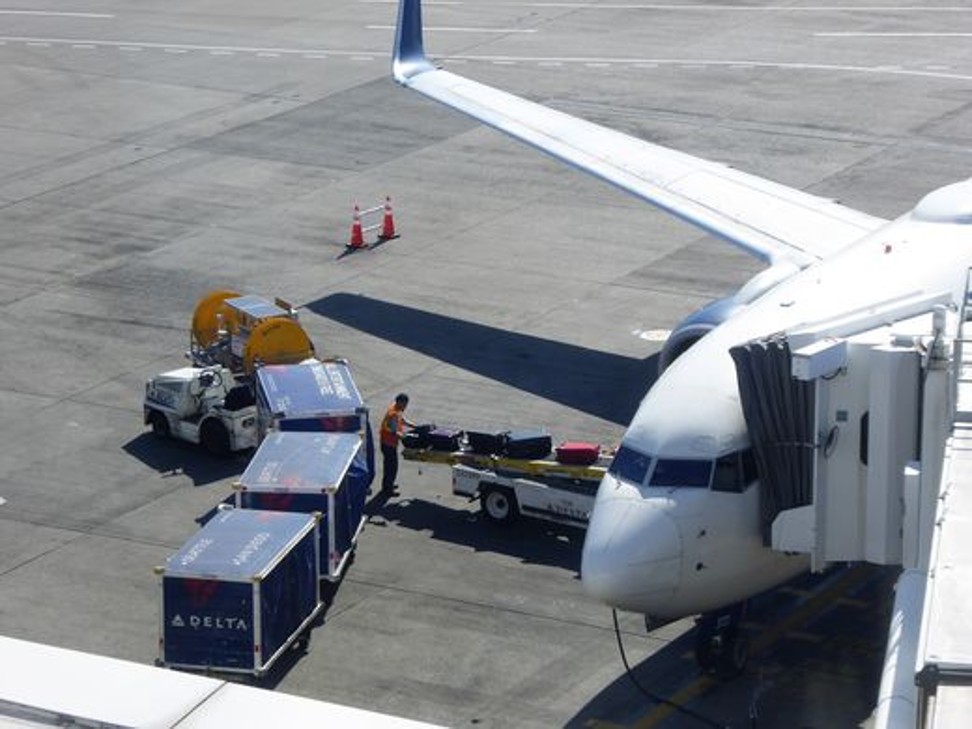
I submitted my receipt for US$260, which included taxes. It took the agents time to find my claim because I didn’t have my “damage incident report’’ and they were having computer issues.
A supervisor offered US$200, a figure noted in my report by the Dallas agents. I told her they said to buy any bag and bring the receipt, no money figure mentioned, due to my hassles with the stock bag.
“We’ll split the difference, how’s that?’’ she asked.
At 1am, I walked out of the office with a cheque for US$225.
5 things to do if an airline damages your bag
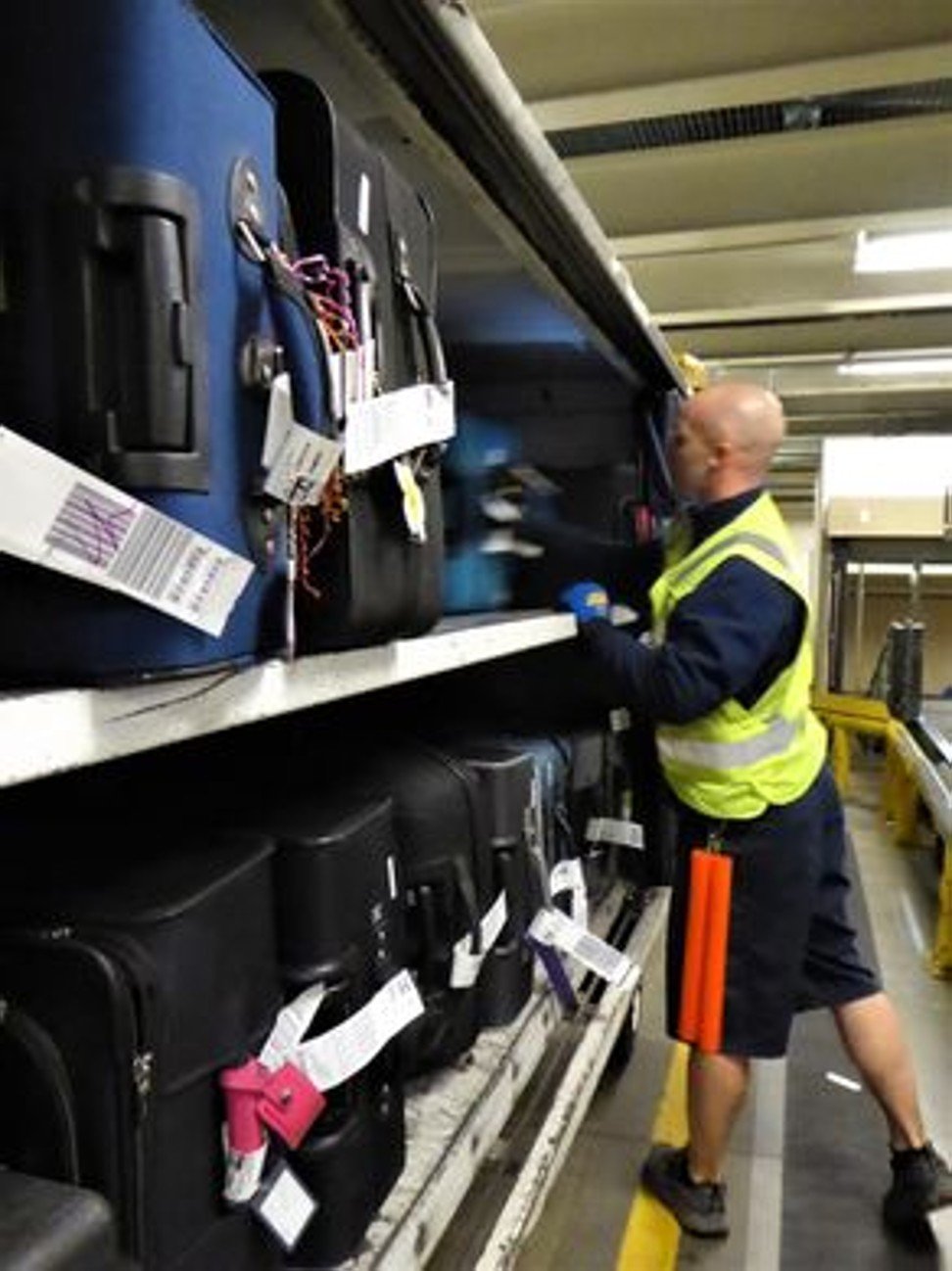
1. Head to the baggage claim office immediately if possible. You have up to 24 hours to report a claim for domestic flights and seven days for international flights on most carriers, though policies vary by airline. Southwest and JetBlue require claims within four hours; Frontier, 12 hours. It’s easiest to do in person, having everything documented on-site instead of spending time on the phone and uploading claim documents online. Plus, you might be offered a replacement bag on the spot if you’re not picky about a new bag.
2. Don’t rip off your baggage tags. The airline will need them.
3. Be calm and courteous. A banged-up bag is a bad way to begin or end a trip, but blasting the baggage claim representative for a missing wheel or hole in your bag isn’t going to help your claim or get it resolved more quickly.
4. Know the approximate value of your bag and where you bought it to give you some negotiating leverage in case of reimbursement.
5. Jot down names of airline representatives and details discussed and stay on top of the claims process if it’s not resolved immediately. Airlines issue a claim number and updates can be found online. Not getting the answers you want? Ask to talk to someone in the airport office where you submitted the claim or a representative in the airline’s central baggage services office.
Want more stories like this? Sign up here. Follow STYLE on Facebook, Instagram and Twitter

Knowing your rights will help resolve a claim faster – you could be given an exact replacement of your bag, or be offered reimbursement, says Dawn Gilbertson